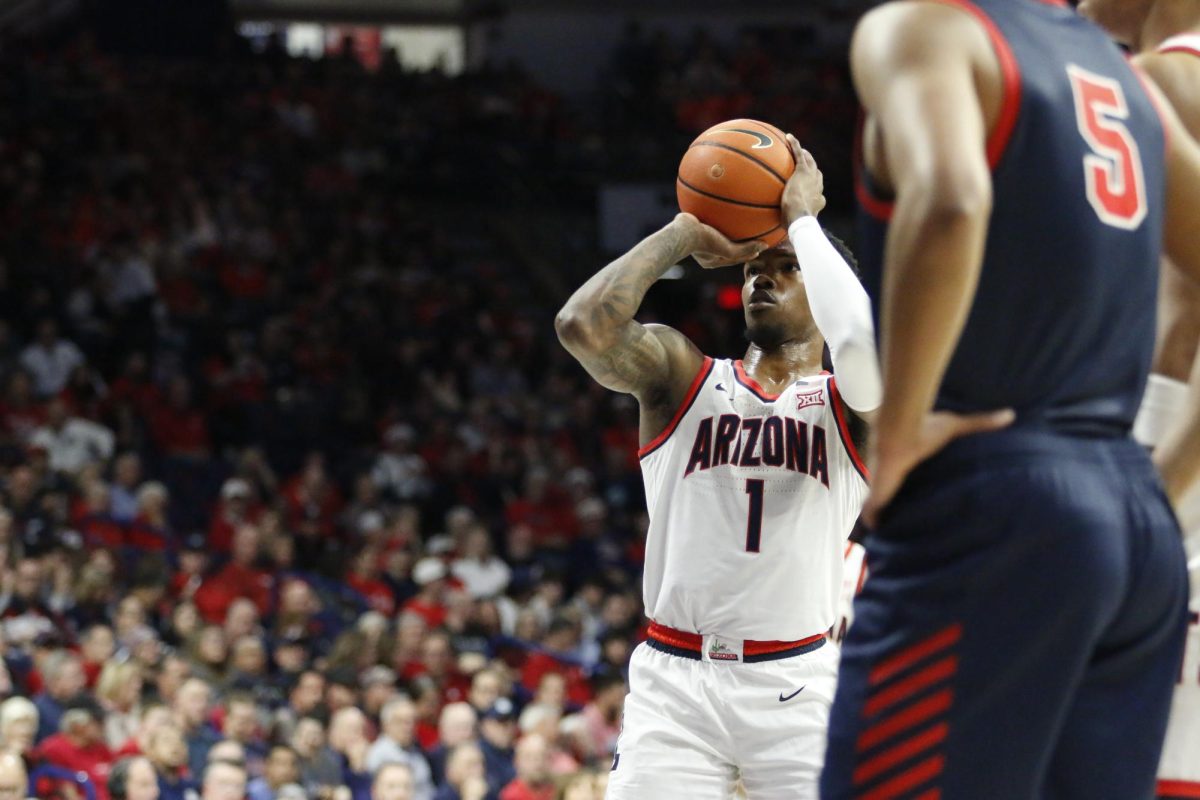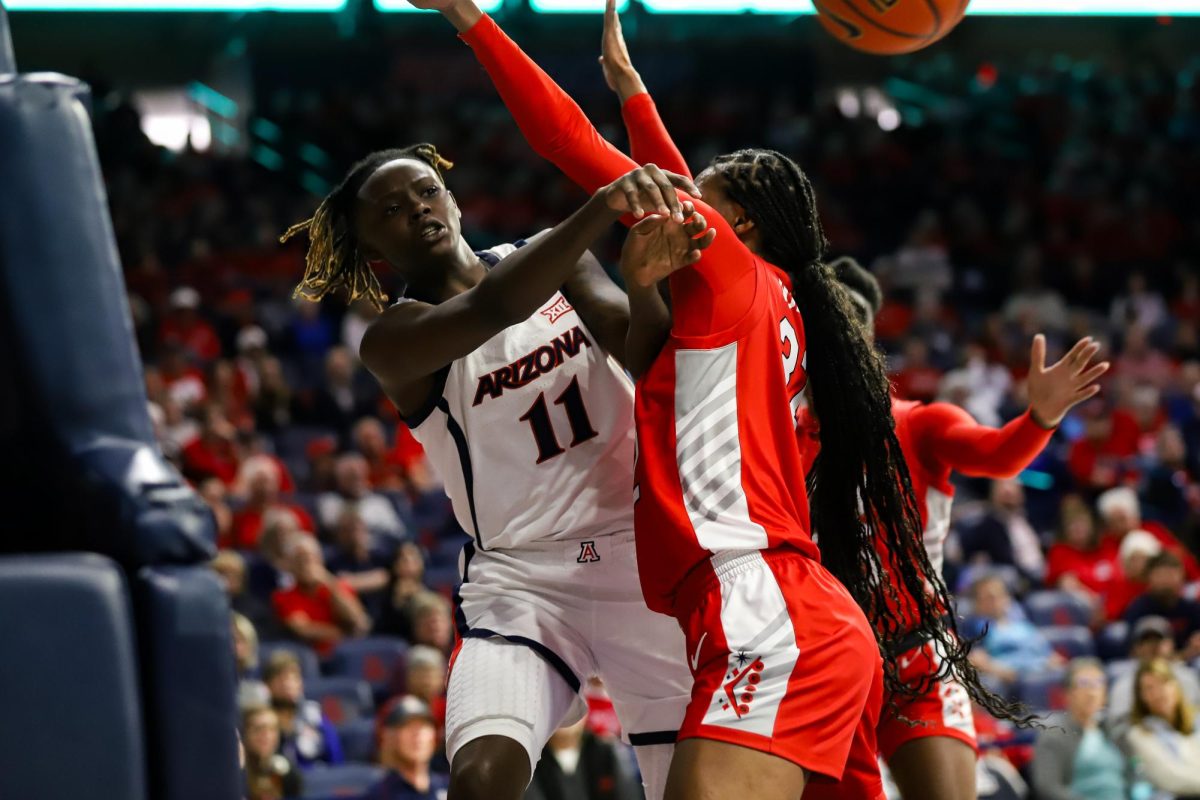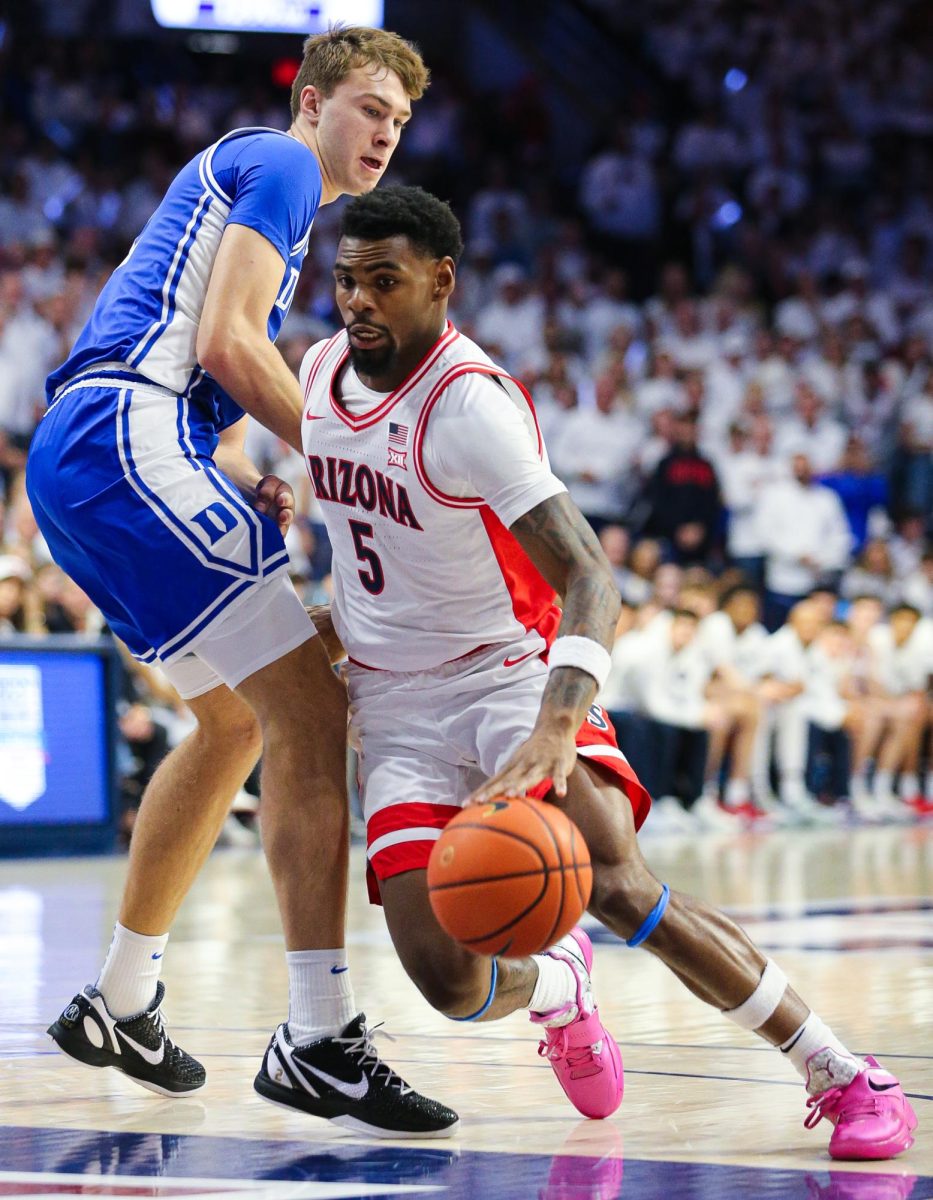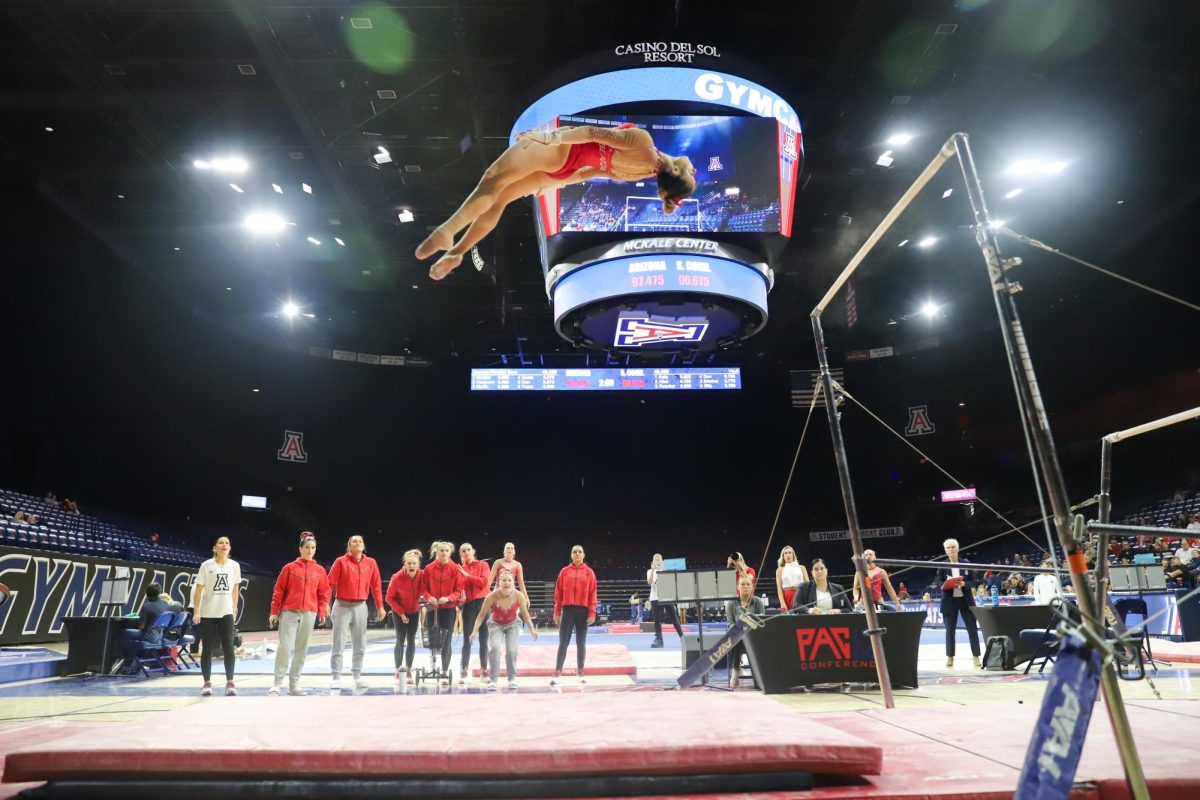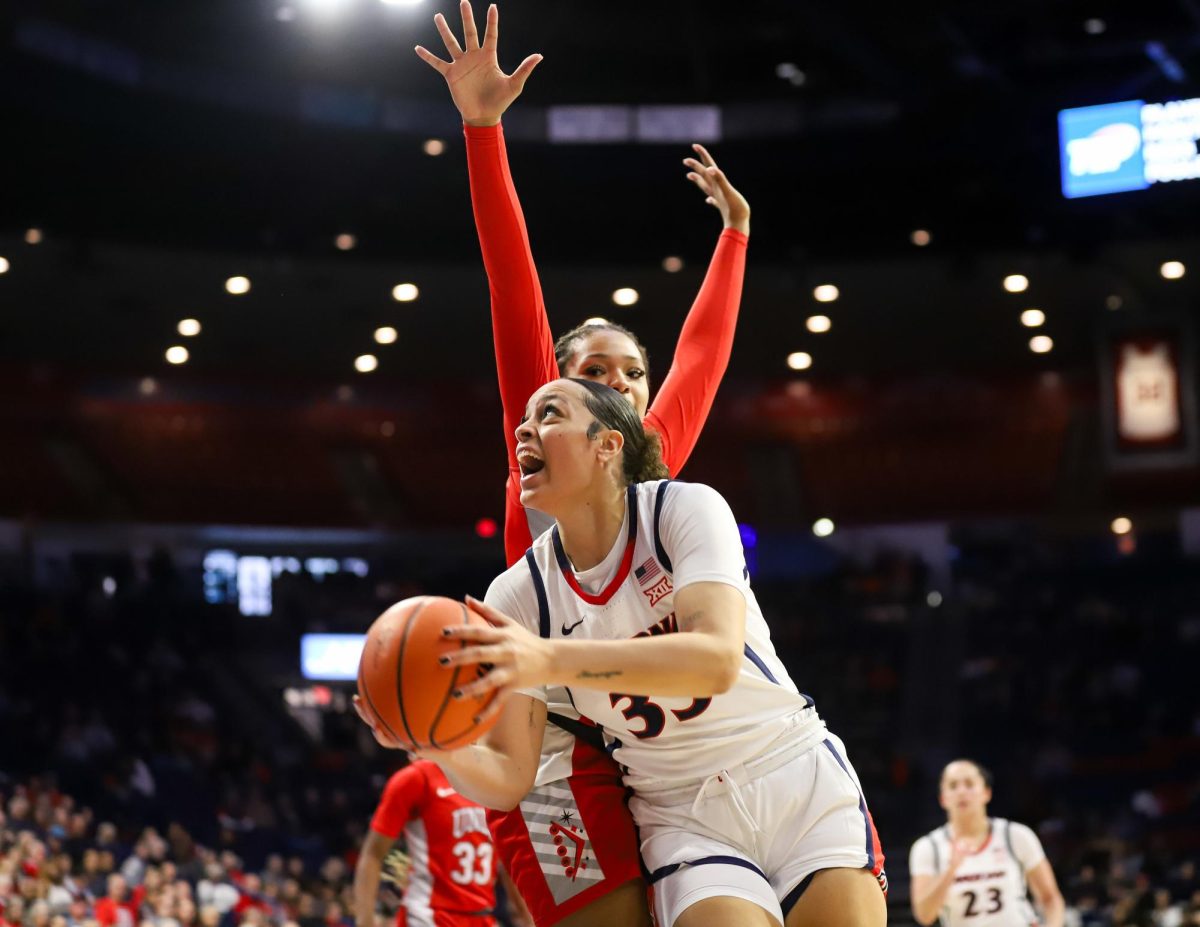Yes: Helplessness could mentally scar players
To nearly double the time of possession, post twelve more first downs and tally 461 total yards to the 256 for the Huskies, the Arizona Wildcats had Saturday’s game won. Well, they should have.
It was demoralizing.
Play poorly against Iowa and lose. Play exceptionally against Washington and lose again.
That’s how a team’s balloon will burst.
The Wildcats played one of their better games of the season, as they rolled through the Husky defense possession after possession but couldn’t bury their opponents.
Quarterback Nick Foles would have posted an outstanding performance, save for his freak interception and then another semi-excusable interception on a last-gasp, fourth down.
In the end, though, such a well-executed performance ending in such a painful loss can’t sit well in the Wildcats’ stomachs.
Greg Nwoko’s first-half touchdown run where he Mack-trucked a Washington defender could have made him feel unstoppable. But come the end of the game, the endless domination of the Washington defense didn’t matter a bit.
It’s like the improbable interception for the Huskies was symbolic of the entire game.
Arizona literally was throwing three consecutive bubble-screens to its wide outs to easily march down the field. When they reached the red zone though, they seemed lost, not knowing what play to run or whose hands the ball should be in.
Similarly, they didn’t know why or how they’d lost the game. It was no mystery that they’d played one of the better games of the year, only for the scoreboard in Husky Stadium to show otherwise.
Where has one game deflated a team so much?
Look no further than ASU’s football team in 2008. After a hyped preseason, the Sun Devils met UNLV in a game most thought was a gimme. But the underdog Rebels led a comeback in the fourth quarter and kicked a field goal in overtime to beat the Sun Devils. It was embarrassing to say the least.
ASU would go on to lose their next five games.
The Wildcats didn’t face as poor of a team as did the Sun Devils a year ago, but there lies more reason for coaches to be concerned about their team’s psyche.
The Sun Devils struggled and lost to a terrible team. The Wildcats played exceptionally well for the most part. Both teams lost, but which scenario would make a team of young men feel more lost, more helpless and without a solution?
In the end, college football isn’t for mentally weak athletes and the Wildcats probably won’t fall into a bottomless pit. Then again, it’s happened to our rivals up north.
— Kevin Zimmerman
No: Wildcats will learn, move on
Following Saturday’s heartbreaking loss, every player brought out for interviews had the look of a child whose dog was just run over by a car.
They appeared saddened, in shock and were short on words. However, behind the somber attitude, each player spoke with a tone that showed underlying confidence.
Because even though Arizona lost — whether it was due to angry football gods or the many missed opportunities — the Wildcats knew at one point they had that game won.
One of the things that struck me as I stood beside the Arizona bench as Huskies’ quarterback Jake Locker threw his final touchdown pass of the evening — bringing Washington to within five with just over two minutes to go — the Wildcats appeared unnerved.
Quarterback Nick Foles led the offense back onto the field with his casual jaunt and his teammates followed suit, ready to do what they had done all night — steadily move the ball down the field, this time in an attempt to seal the game.
Obviously, things didn’t pan out the way Foles or anyone in that stadium projected, however, even after the Arizona offense failed to drive the field in the final two minutes for the dramatic comeback there was no aura of a beaten team surrounding locker room in Seattle, Wash.
Instead the players appeared to know exactly how they lost the game.
“”Too many missed opportunities,”” said receiver Dave Roberts.
Nearly every player could pinpoint the mistakes: the inability to score on fourth down from the one yard line, the four field goals from within the red zone and the allowing of Locker to find a rhythm late in the game. The significance of these immediate observations is that Arizona knows what it needs to fix.
After their 10-point loss to Iowa three weeks ago, players found difficulty describing what went wrong other than suggesting they were outmatched.
“”They were really physical,”” quarterback Matt Scott said of Iowa after the game. “”(The coaches) told us they would be but I didn’t expect them to be that big and strong.””
But even after a loss that demoralizing, the Wildcats found a way to right themselves and beat a talented Oregon State squad two weeks later.
With this Washington loss, little confidence has been lost. The only casualty was Arizona’s momentary happiness.
Losses like Saturday’s tend to burn more than demoralize, and with a three-game homestretch on deck, the team’s attitude Monday was full of more excitement than nerves.
“”We just need to learn from this loss and take that into next week,”” Foles said after Saturday’s game.
With an attitude like that, Arizona will be fine.
— Bobby Stover



